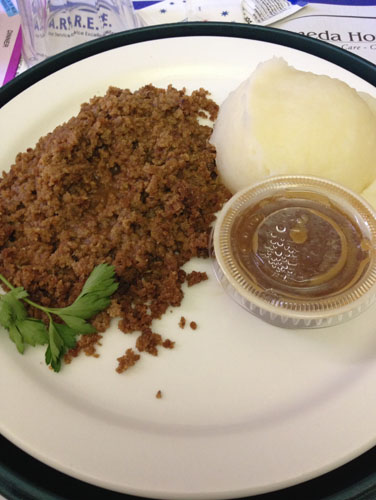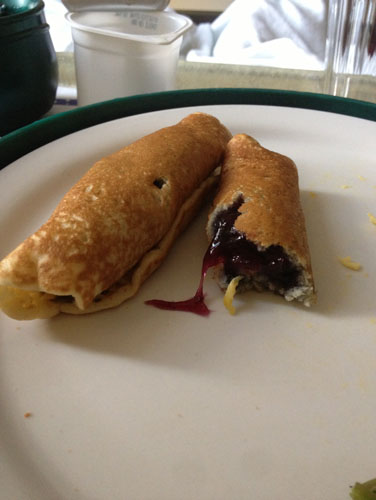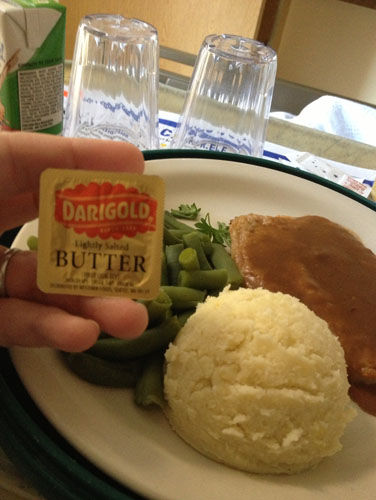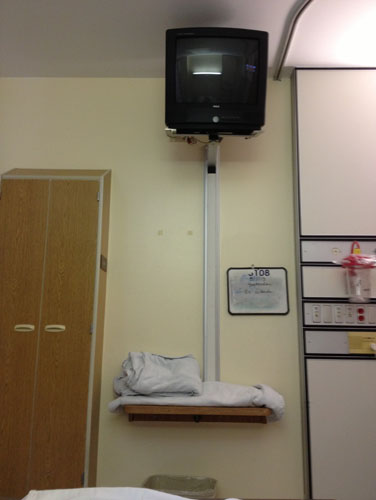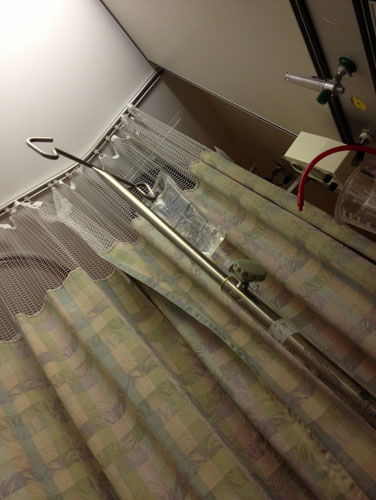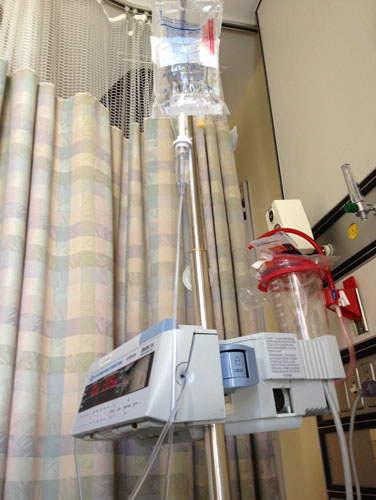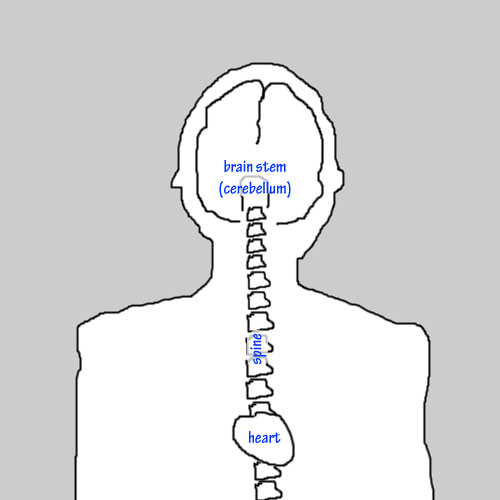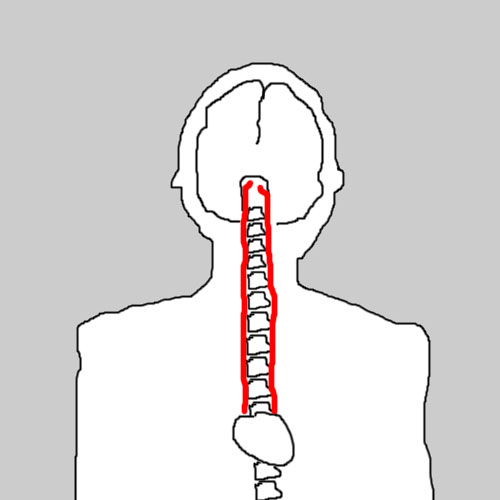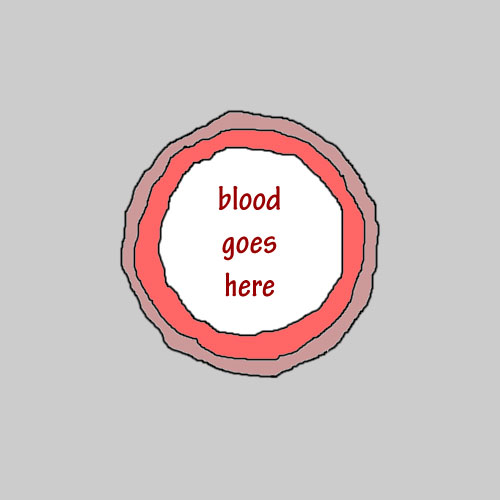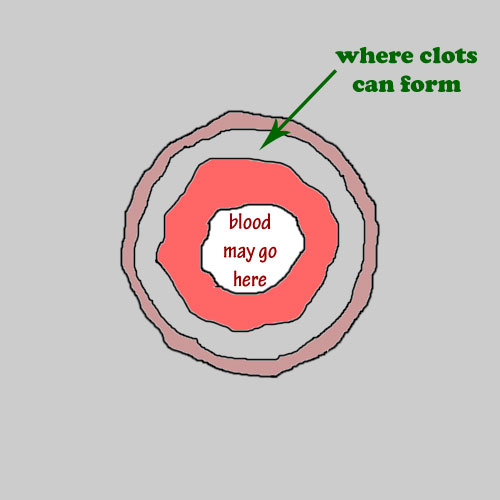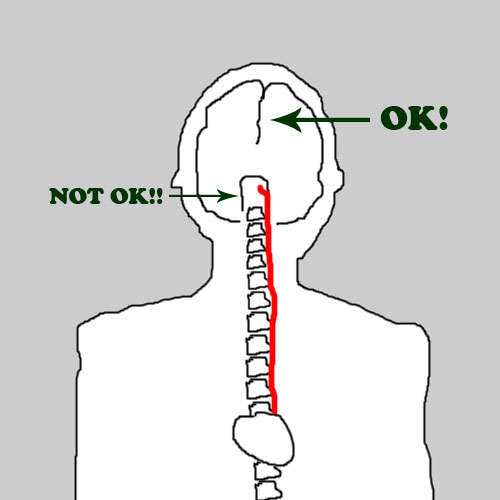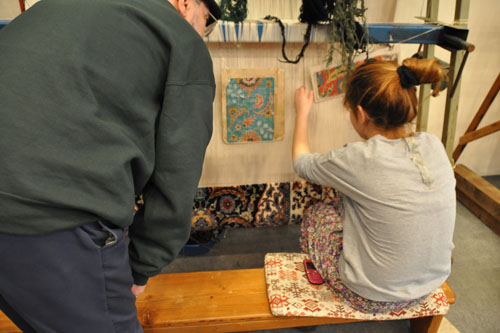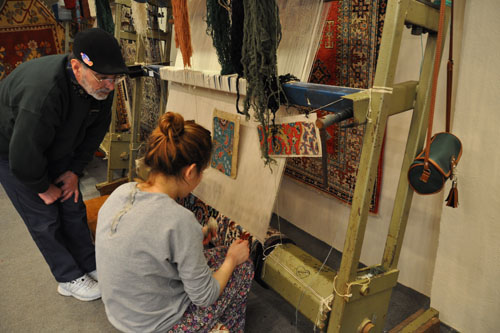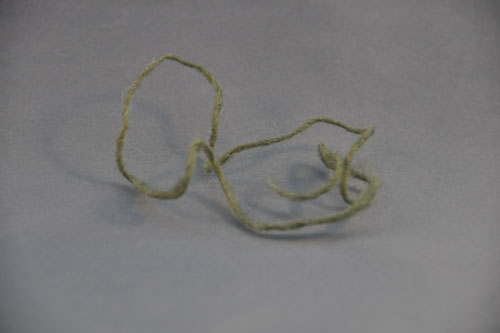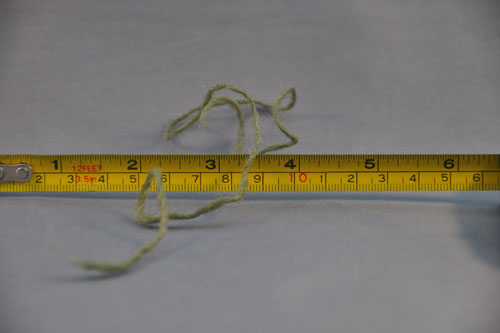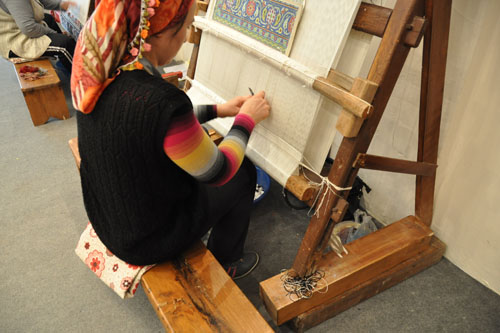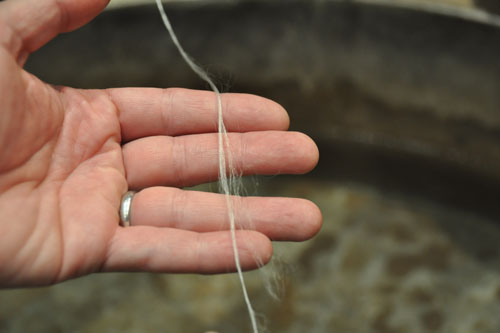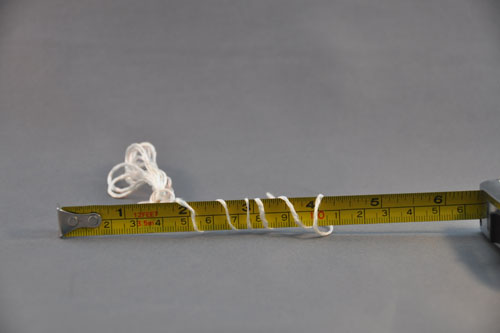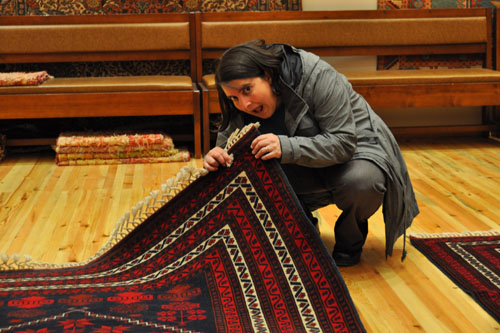Recovery.
Recovery is where you spend all the time. For me the stroke was maybe 15 to 20 minutes, then a day of barfing.
Then recovery.
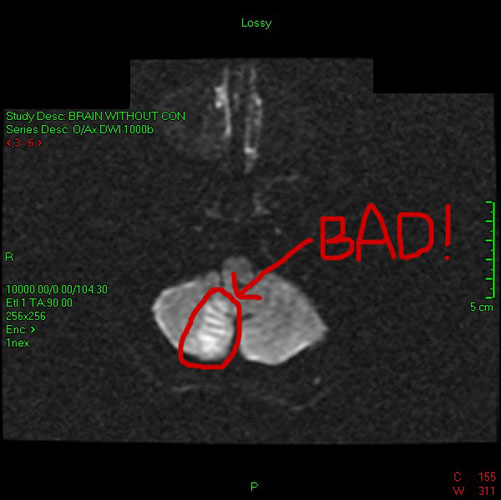
So there's my stroke. On the cerebellum, right near the centerline. The way my neurologist explained it to me, functions in the cerebellum mimic the body: the further to the outside, the further from the body core they are. My damage was all core, and it is confined to my balance.
The first part of recovery was working on simple lying-down exercises to re-teach my brain about balance. Turning my eyes side to side, up and down. Turning my head the same way -- still makes me dizzy, but it's important to do it to teach my brain not to be dizzy.
Walking. The first walk was intensely disorienting. I felt detached from my body. Things didn't just work the way I was used to. I was having to catch myself from falling.
And mind you, by then I had walked into the bathroom a few times. But longer than that, in a straight line, was harder.
The amount of work involved in walking increased by quite a bit. I've always been quite a walker, able to keep going, albeit slowly, for hours. Now walking a couple blocks is real effort. Not aerobic effort, but thinking effort. I'm having to consciously hold myself upright and not swerve around. The best comparison is to being a little drunk all the time.
Most of my physical therapists, occupational therapists, and frankly many other people are surprised at how well I am getting around. This is not common, though I was, as I mentioned, incredibly lucky and my stroke was very small and fortunately confined. And I was already an active person which is kind of half the battle for those poor PT and OT people, trying to push somebody to move who isn't interested in moving.
And the pain. Nobody ever seems to mention the pain when they talk about stroke recovery.
OK, maybe they are focussed on recovering more motor functions and mental capabilities, but let me tell you about the pain. I started out with 100mg of gabapentin three times a day -- that's the generic of Neurontin and an anti-seizure drug (they're very cautious about seizures after a stroke) that helps with nerve pain as well -- and 650mg of acetaminophen every 4 hours. That was fine up to a point, but once I really got exercising and moving around again, the pain got much worse.
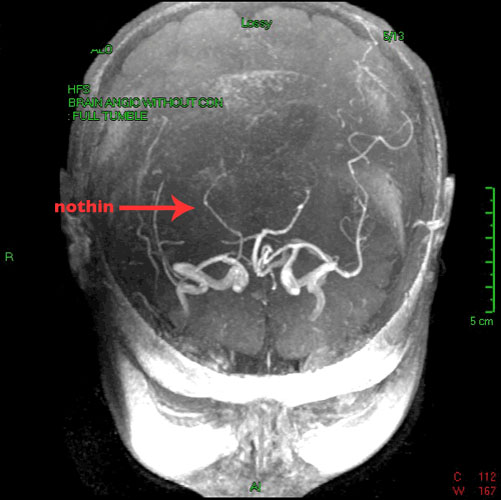
You see how the blood vessels are just kind of not there or all small and hard to see on this scan? Those blood vessels are surrounded by nerves, and the nerves are freaking the heck out. They don't know what is happening, and so they are sending signals to the brain and the brain doesn't know what the heck to do with that so, well, default to pain. Thanks, brain.
The gabapentin is the reason I'm not (always) curled up in a ball in pain. On Friday morning I woke up at 3am in hideous pain, the kind of pain that radiates out all over your body.
Doctors ask you to rate your pain on a 1-10 scale with 10 being the worst pain you can imagine.
My scale:
radiating pain = level 8
radiating pain plus barfing or severe nausea = 9
radiating pain plus blacking out = 10.
I have experienced all of these. Level 10 sucks really hard, by the way. Though to be honest I have a pretty good imagination and I think that having a limb cut off while in level 10 would be like a 15 or so. When I say things like that to doctors they never seem to know what to say, but I read this horrifying book once on the history of surgery and I think those early patients really knew what a level 10 really was. In comparison, I am a total wimp.
So, well, on MY scale on Friday I spent the hours between 3am and 11am at a level 8 or 9.
The thing was, it was the morning the housekeepers were coming, and having the house cleaned is very important, so we had to get us and the dogs out of the house.
I'd woken up at 3am in intense pain, and the acetaminophen didn't touch it (I've actually pretty much never found acetaminophen very effective, and its toxicity keeps me from keeping it around the house in general, but NSAIDS like ibuprofen are verboten when you are on blood thinners). You can't just take more -- the stuff is very very toxic to your liver.
Noel called the 24-hour nurse and they were useless, didn't do any of the followup they said they would do. Finally after a few phone calls, we called the neurologist and she told me to up the gabapentin to 300mg.
I did that and was almost immediately not in so much pain any more. The gabapentin is messing with my vision (everything is blurry) and it makes me so sad I want to cry all the time (maybe not such a great drug for somebody who is chronically depressed), but it is saving my life in terms of pain relief.
The pain ebbs and flows. Tonight I spent an hour on the treadmill just walking because my left shoulder felt stiff and achy and sometimes a little exercise helps with that kind of thing, but it just got worse. I've been riding busses to work and around town because it's still not a good idea for me to drive (and also because I don't normally drive to work), and that can either be agony or just fine. Usually the pain is on the right side of my head and neck; today it shifted to the left, though I think that is more of a tension headache thing.
One doctor tells me the pain might start to go away in a week or so. I like that idea. In the meantime my neurologist gave me a gabapentin routine that should help manage the pain without having to take acetaminophen every four hours (which really messes with the sleep schedule). I slept through the night last night, which was very nice.
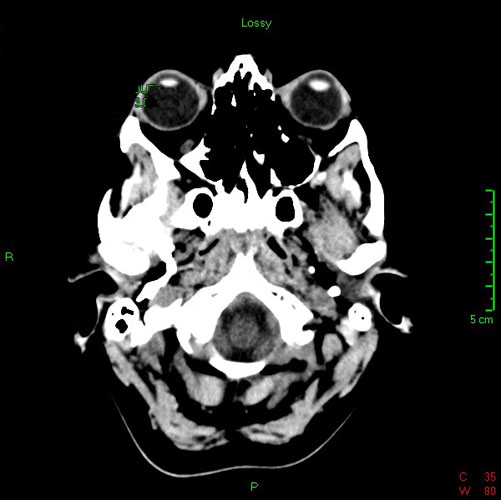
And just to end this post on a high note, this is one of my brain scans that looks all freaky and weird. We have a lot of empty space in our heads. Also, check out my weird ears.
